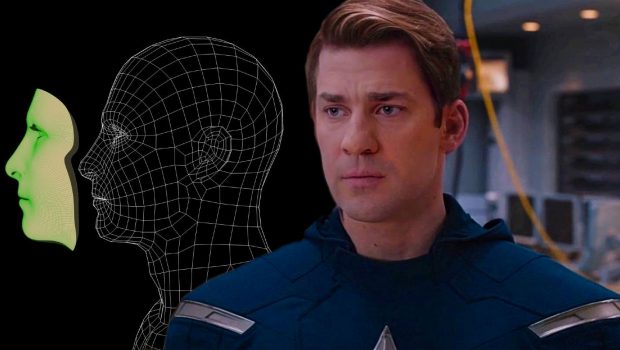Deepfake technology is on the rise in Hollywood, and here's how it will change the movie industry as time goes on. There has been an increased desire in Hollywood recently to use various forms of de-aging technology to bring back performers who are no longer alive or achieve realistic depictions of their younger selves. Rogue One: A Star Wars Story, for example, digitally recreated Peter Cushing in a controversial decision to bring Grand Moff Tarkin back to the franchise. Meanwhile, de-aging technology has become incredibly common as everything from the MCU to The Irishman has used it to recreate younger versions of their stars.
Hollywood is now in the early stages of figuring out how to apply deepfake technology in various ways to achieve similar results. Deepfakes became incredibly popular in recent years online as the A.I.-driven technology showed glimpses of what Tom Cruise's Iron Man could've been like or put Tom Holland and Robert Downey Jr. in Back to the Future. The evolution of this technology has made the movie industry and Hollywood's VFX teams take notice. The potential for it can be applied in a number of ways, such as how The Mandalorian considered using deepfake technology to create young Luke Skywalker, or the discussions of it enabling a young James Dean to star in a new movie, even though he's been dead since 1955. As it continues to be perfected, deepfake technology has the chance to drastically change the movie industry.
In theory, the benefits of deepfake technology for the movie industry could be huge when it comes to post-production and reshoots. Since deepfake technology uses an incredible amount of data and footage to recreate a person's image, it could be used by filmmakers to change lines of dialogue without needing to do reshoots. A new line could be written and then recorded by the actor with a camera capturing their movements. Deepfake technology would then be able to momentarily replace the original performance for the new line. Instead of getting an entire set and crew assembled to change some dialogue, it could all be done with a small team and deepfake technology. The same methods could've been used on Justice League's reshoots to avoid Henry Cavill's CGI lip, too.
Those are small examples of how deepfake technology could help Hollywood on the backend that most viewers wouldn't even notice. But, there is also the chance for deepfakes to become a much bigger part of a movie's production. The technology could advance to the point where movies could replace actors with other stars. This is actually an idea Space Jam: A New Legacy explored briefly, but the ramifications would be massive. For instance, Marvel Studios could commission a deepfake version of The Incredible Hulk that replaces Edward Norton with Mark Ruffalo. Hollywood could also take this to the extreme when it comes to reboots and use deepfake technology to put current stars in past movies (or vice versa).
There's even the opportunity for current movies to be made without the main cast member ever being on set. Movie stars currently have to deal with scheduling conflicts all the time, but that wouldn't have to be the case. Someone as busy as Dwayne Johnson could appear in any movie he'd want with deepfake technology. This does obviously come with some caveats. Deepfake technology only replaces the face of the actor, so any movie that would want to attempt such a challenge still has to find someone with the same body type who can also mimic how that person walks and gestures.
Of course, the possibilities of deepfake technology also come with a lot of concern and a number of ethical questions. Questions of legality regarding using someone's likeness who can't agree are also valid. The fears about what deepfake technology could be used for are understandable, but its application for movies is not as extreme. Instead, it will be up to the individual projects, studios, and creators who utilize the technology to make sure it is done the right way.
About The Author








Gloss